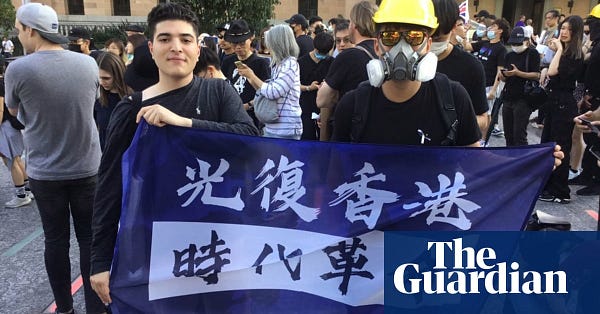One country, one two-faced system


Hong Kong’s chief administrator Carrie Lam thinks other countries shouldn’t interfere with China’s proposed national security legislation against so-called “terrorist activities.” However, the eruption of new protests, and how police responded to it, made it impossible for others to ignore:
The law is set to bar foreign judges from national security cases was also decried by nearly 200 global political leaders who view the move as a “flagrant breach” of the Sino-British Joint Declaration, which returned Hong Kong to China in 1997. Beijing’s top envoy in the region is still banking on support from diplomats and business leaders.
The forbidden characters

This observation from a tech company founder met with a response from YouTube, which blamed a moderation system error for comments using the Chinese phrases for “communist bandit” or “50-cent party” to be deleted. It was noticed soon after a report that drew attention to YouTube owner Google, along with Amazon and Microsoft:
Do you live in part of the world where you’ll still free to share China-skeptical content on social media? Do it for those who cannot. 👇
“Double criminality”
Huawei executive Meng Wanzhou still faces extradition to the U.S. after a Canadian judge ruled in favour of American prosecutors. A few days earlier, she posed for a photo shoot in Vancouver with a look of confidence regarding the freedom that instead has now been denied. Oops.


Canada’s relationship to China also made news with the discovery that digital government minister Joyce Murray’s group on WeChat promoted a fundraiser to sue a reporter who investigated Chinese mask hoarding. Prime Minister Justin Trudeau claimed ignorance but then conceded that the anti-democratic actions within his Minister of Digital Governance’s WeChat forum were unacceptable.
Views from Down Under


Calling out the University of Queensland’s ties to the Chinese Communist party has made Drew Pavlou a heroic student icon in a time when schools are largely closed around the world. He’s fighting expulsion due to this activism. Beijing has otherwise been stepping up its lines of attack on Australia:
The last words, for now
Tracking technology introduced to fight COVID-19 are now being proposed in China to become permanent ways of keeping citizens under watch in the surveillance state. Authorities in the city of Hangzhou are proposing a “firewall to enhance people’s health and immunity,” which critics fear opens the door to more monitoring of individuals than ever before:


The China Letter is sent on Wednesdays and sometimes on Thursdays. If you’re not subscribed yet, do it here:









